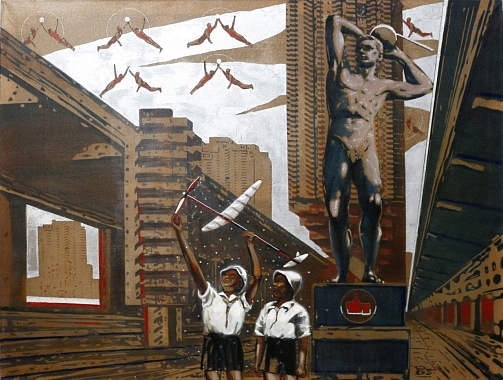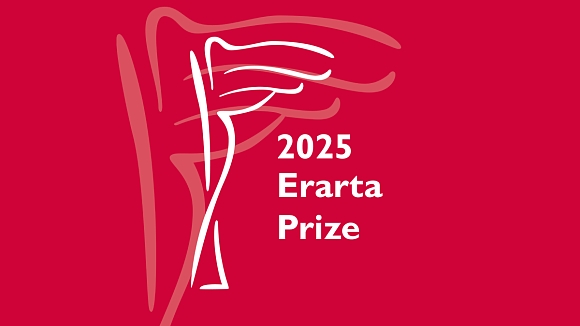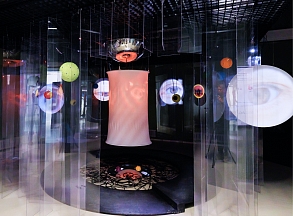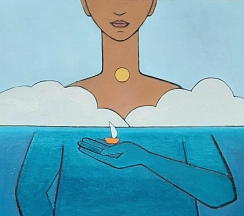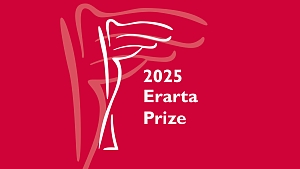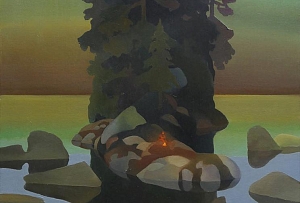Oscar Rabine: “Things like ‘time’ are never happen twice…”
The exhibition "And Paris was the gift" by Oscar Rabin will run at Erarta Museum till April 27. We have interviewed the legendary artist.
Is there any difference between you recent works, created in France, and what you did before?
Yes and no. Now and then I wanted to express myself and my attitude toward surrounding reality. I started with working on formal issues. It is well-known, that in the USSR any kind of art except for Socialist Realism was forbidden up to the certain time. Artists, with only few exceptions, hardly even tried to experiment.
All my friends worked from nature, those who were able to, joined the Union of Artists. But I couldn’t do the same, as I couldn’t reach the required level, which, in fact, was quite average. Trying to succeed in life, I designed illustrations for several books, which was essential if I wanted to enter The Trade Union City Committee.
Then unexpected freedom of the 1960s suddenly allowed us to look for ourselves and for some new media and styles. This time had a huge influence, not only on artists, but also on writers and poets, who rapidly appeared during the Khrushchev Thaw, as a green shoots out of the ground. I also was enthralled by the common desire for self-actualization in that new world.
Did your forced immigration to France in the late 1970s and the founded freedom bring anything new to your art?
I believe in fate, I am convinced that Paris was predestined to become my home city, and nobody knows who or what should fulfill the will of fate, and why the Soviet authorities became the instrument for that. Paris helped me to find myself, my own themes, objects and motifs. These searches led me to conclusion that the most important thing, for me, is to stay true to myself.
In Russia, main symbolic image in my art was the barrack, I knew its inner life, and therefore could vividly depict it. In Paris, I was immediately enchanted by windows and grates on them. Those lighted windows resemble starring eyes, and for me they are blind since I don’t feel a life which hides behind them. But France has given me a keen understanding of what I am and what I can do as an artist.
Paris is a beautiful city, but I realize, as a big city it’s full of violence and other negative events, here I also mean the recent tragedy in Charlie Hebdo headquarters and on the streets. Despite that I still feel comfortable on these streets, this is my home, and I have to paint what’s close to me. It stands to reason that my style in latest works has been simplified; I turned back to realistic painting, and no longer attracted to deformation.
There are more color contrasts in your recent works, does it mean you wish to emphasize something?
The color scheme of my works is always dark, I often use black outlines, although I also like color modulation. Bright colors are used to counterpose or highlight something. In the USSR, of course, my painting was rougher, now it is more circumspect, maybe it’s a consequence of age and there is no more young energy left.
To me, on the contrary, the new works give a feeling of rather vibrant energy.
Perhaps, but it is not a formal, but rather inner energy, based on composition or color.
Do you follow any young Russian artists and do you think that contemporary Russian art has a future?
I follow Russian contemporary art, as far as that Internet “engine” allows me. Most of all I’m interested in what it will result in, and I wonder the same for the whole World-Art. Art rarely goes against society, although this was not always true. The Soviet reality was in perfect conjunction to its art, though forcibly imposed.
It’s not clear what will happen next. We see nationalism, which rarely goes along with those who speak international language. It means there will be a step back to the past. Although I hope things like “time” are never happen twice. But predicting future is thankless, even though you can guess it, because the options are limited: it’s either good or bad.
January 2015
Questions: Elizaveta Shagina


